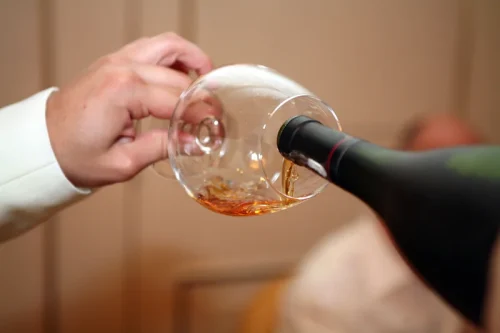Friendly relations can make it easier for you to call the parent of a teen who is having a party to be sure that a responsible adult will be present and that alcohol will not be available. You’re likely to find out that you’re not the only adult who wants to prevent teen alcohol use—many other parents share your concern. In fact, you’re likely to have a greater impact on your child’s decisions about drinking by having a number of talks about alcohol use throughout his or her adolescence. Think of this talk with your child as the first part of an ongoing conversation. In fact, alcohol is used by more young people than tobacco or illicit drugs.
Teenage Alcohol Use Disorder
After all, they probably have the same concerns about underage drinking as you do. Staying connected and being aware of who your child is hanging out with can help reduce the chances of underage drinking. Attending a 12-step program or other support group is one of the most common treatment options for alcohol abuse and addiction. AA meetings and similar groups allow your loved one to spend time with others facing the same problems. As well as reducing their sense of isolation, your loved one can receive advice on staying sober and unburden themselves to others who understand their struggles firsthand.
The Bottom Line: A Strong Parent–Child Relationship
Make sure your spouse agrees with the rules and is also prepared to enforce them. Kids face a huge amount of stress as they navigate the teenage years. Many turn to alcohol to relieve stress, cope with the pressures of school, to deal with major life changes, like a move or divorce, or to self-medicate a mental health issue such as anxiety or depression. Talk to your child about what’s going on in their life and any issues that may have prompted their alcohol use. As a teenager, your child is likely to be in social situations where they’re offered alcohol—at parties or in the homes of friends, for example. Studies have shown that the earlier your child uses alcohol, the more problems they’re likely to experience later in life, so it’s never too early to start the conversation.
Supporting your loved one’s recovery
When your teen abuses alcohol, it’s easy to judge yourself or negatively compare your family to others. But it’s worth remembering that the teen years don’t Substance Abuse In College Students last forever. With your guidance and support, your child can learn to resist the allure of underage drinking and, if they later choose to do so, develop a healthy, responsible relationship with alcohol when they reach adulthood.
- Local and state governments support continuation of the age-21 minimum legal drinking age due to its effectiveness in reducing underage drinking consequences.
- You also need to remember that teens may have fears too.
- There are an estimated 26.8 million children of alcoholics (COAs) in the United States and preliminary research suggests that more than 11 million of those are under the age of 18.
- A 2018 University of Michigan study indicated that 41% of teens reported alcohol use in the last 30 days and, of most concern, 3% reported daily use.
- Although most children under age 14 have not yet begun to drink, early adolescence is a time of special risk for beginning to experiment with alcohol.
- Dealing with a loved one’s alcohol abuse or alcoholism can be painful and challenging for the whole family, but there is help available.
It may be that their new friends are encouraging this negative behavior. You may wonder why a guide for preventing teen alcohol use is putting so much emphasis on parents’ need to understand and support their children. But the fact is, the best way to influence your child to avoid drinking is to have a strong, trusting relationship with him or her. Research shows that teens are much more likely to delay drinking when they feel they have a close, supportive tie with a parent or guardian. Moreover, if your son or daughter eventually does begin to drink, a good relationship with you will help protect him or her from developing alcohol-related problems. Occasional abuse of alcohol during the teenage years can result in addiction as well, if the young drinker becomes dependent on alcohol and develops cravings for it when he or she cannot obtain it.





